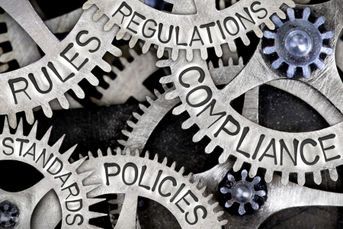Fiduciary conduct is good for business
Following fiduciary best practices strengthens client relationships and makes them more enduring.
Investment advisers have been conditioned to think of fiduciary conduct as a compliance matter. The long-debated DOL fiduciary rule, the impending SEC fiduciary rule, Finra’s recent “best interest” spin on suitability, and new fiduciary laws introduced by states all fix attention on mandated behaviors based upon fiduciary obligations.
The focus on compliance obscures the compelling business case that fiduciary conduct (1) is what clients want, (2) is operationally efficient and reliable, (3) strengthens client-adviser relationships and makes them more enduring, (4) provides the adviser with greater pricing power, and (5) enhances the advisory firm’s brand and market valuation.
Clients want trustworthy advice. Common sense tells us that for matters of great importance in areas beyond our personal expertise, we want the advice of professionals who are competent, ethical and worthy of our trust. Research bears this out. In 2017, the CFA Institute conducted a survey of 4,000 private investors and published its findings in The Value of Premium Wealth Management for Investors. The top four “essential adviser qualities” sought by wealthy investors are: professionalism, integrity, clear communication and financial acumen. While clients may not articulate that they want a fiduciary adviser, the qualities they seek are those of a fiduciary.
Fiduciary best practices are principles-based and process-oriented; they are objective, consistent and reliable. Fiduciary decision-making typically involves defined factors to consider and methods of analysis that can be programmed for operational efficiency. In The Business Value of Trust, a white paper published in 2016 by the technology consulting firm Cognizant, the headline conclusion is that “Consumer trust has become the new battleground for digital success.” Both that paper and the one from CFA Institute speak to the important role technology can play in automating due diligence, client data management, compliance monitoring and other core fiduciary obligations.
Fiduciary conduct strengthens client relationships and makes them more enduring. The Trusted Advisor, a book published in 2006 by David Maister, Charles Green and Robert Galford, delves into the importance of trust in establishing a sustainable and rewarding professional practice as an investment adviser. The authors introduce “The Trust Equation” as an actionable model of the drivers of trust: Trustworthiness = (Credibility + Reliability + Intimacy)/ Self-orientation. Credibility is demonstrated or verified competence and quality. Reliability is demonstrated diligence in the performance of responsibilities and fulfillment of commitments. Intimacy is the strength of the professional relationship and involves empathy and engagement. Self-orientation addresses conflicts of interest as a detractor that undermines credibility, reliability and intimacy.
Credibility and reliability align to the fiduciary duty of care. Intimacy and self-orientation (or, more accurately, client-orientation) relate to the duty of loyalty. Essentially, an adviser scores high on the equation by focusing on fiduciary excellence. The point of concentrating on trust is to establish a great reputation based squarely on what clients want most — trustworthy advice from a competent and ethical professional.
A great reputation pays big dividends when it comes to pricing power and company valuation. Charles Fombrun, co-founder of the Reputation Institute and a former Wharton professor, notes that “our purchasing decisions are governed by two factors: our perceptions of products and services we are interested in buying, and our perceptions of the companies that stand behind them … It turns out that company reputations are likely to be more important.” Consulting firm Reputation Dividend Ltd. publishes an annual US Reputation Dividend report based upon reputation value analysis to highlight the importance of reputation management and factors that influence reputational value. Recent findings indicate that more than 20% of the shareholder value (market capitalization) of S&P 500 firms is accounted for by reputation. The contribution varies widely by industry and firm and can exceed 50%.
An investment advisory firm’s reputation is its most valuable asset. Without trust, there is no basis for an advisory relationship.
The case for building a business on a foundation of fiduciary practices is compelling. The model is client-centric, credible and reliable. It involves establishing a firm culture and brand that are valued by investors and it is more sustainable than a model that depends on the reputation of a company founder or a few key advisers. A great company reputation is the basis for client growth and retention, along with pricing power. Sustainable, profitable growth drives business valuation formulas.
Fiduciary conduct also mitigates regulatory and litigation risks. But it isn’t about compliance, it’s about your professional reputation.
(More: Why raising fee awareness matters for 401(k) advisers)
Blaine F. Aikin is executive chairman of fi360 Inc.
Learn more about reprints and licensing for this article.







